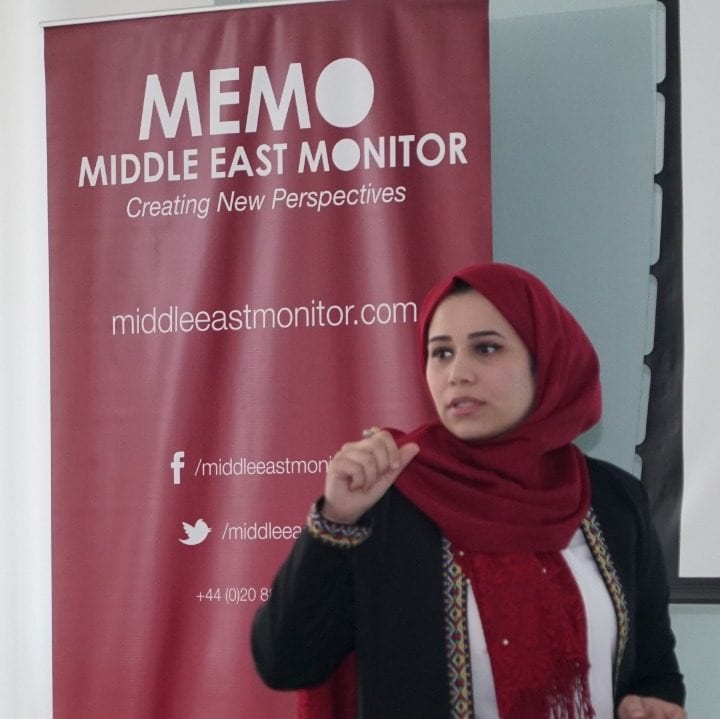Latin American heads of state proclaimed the rights of Palestinians and called “for the necessity of establishing a free Palestinian state” at the United Nations General Assembly’s 78th Session.
Held between 19-26 September, the UN meet brought together heads of government from around and heard the leaders of Chile, Cuba, Brazil, Bolivia and Colombia calling on “the United Nations to denounce the persecution” of Palestinians.
The world’s youngest leader, Chilean President Gabriel Boric sounded the alarm on the violations of the Israeli occupation against Palestinian people. He urged the world to “not to remain silent when we see the illegal occupation of Palestine and the inability of Palestine to form a state. We must recognise their rights under international law.” Boric also called on member states to support the “establishment of an independent Palestinian State.”
Boric, who is known to be a staunch supporter of the Palestinian cause and a defender of human rights, called on the world to “defend human rights in all places at all times whatever the politics of the government that undermines them.”
Gabriel Boric was not the only Latin American president to raise the issue of the plight of the Palestinians; Brazil’s President Luiz Inacio Lula da Silva said: “The world will not witness sustainability or prosperity without peace. We already know the horror and suffering of all wars, and therefore, promoting a culture of peace is a duty for all of us, as building it requires continuity and vigilance.”
“It is disturbing to see that old conflicts have not been resolved yet, and their threats are increasing little by little,” he added. “This is clearly demonstrated by the difficulty of securing the establishment of a state for the Palestinian people.”
On the sidelines of UN meetings, President of the Palestinian Authority Mahmoud Abbas met with Lula who stressed his country’s support for the Palestinian people and continued the coordination to strengthen the existing friendship and relations between the two countries. The Palestinian president took the opportunity to invite Lula to visit Palestine.
Ainda pude conversar com o presidente da Palestina, Mahmoud Abbas. A reunião bilateral teve como tema a importância da criação do estado Palestino, garantindo dignidade para quem vive nesses territórios. Estive na Palestina em 2010 e fui convidado para retornar em breve. 🇧🇷🇵🇸
— Lula (@LulaOficial) September 20, 2023
During his speech at the UN, Colombia’s President Gustavo Petro underscored that “the war in Ukraine benefits the world powers, while their approach to Palestine is different.” To achieve peace, he proposed that “the United Nations should as soon as possible hold two peace conferences — one on Ukraine and the other on Palestine. This would lead the way in helping to bring peace to all regions of the planet, because both of these alone can bring an end to hypocrisy as a political practice.”
Petro said he regretted that “we decide to waste time killing one another instead of solving the situation and ensuring a sustainable future.” To meet Sustainable Development Goals, he suggested that “all wars must be brought to an end. The Sustainable Development Goals will not be met, as instead of social justice we see global injustice.”
![Colombia’s President Gustavo Petro speaks at the 78th session of the UN General Assembly in September 2023 [UN]](https://i0.wp.com/www.middleeastmonitor.com/wp-content/uploads/2023/09/un71000375.jpg?resize=1200%2C800&ssl=1)
Colombia’s President Gustavo Petro speaks at the 78th session of the UN General Assembly in September 2023 [UN]
In view of that, he reiterated the regional commitment proclaiming Latin America and the Caribbean as a Zone of Peace, within the framework of the Community of Latin American and Caribbean States (CELAC).
While Miguel Díaz-Canel Bermudez , president of Cuba, affirmed his country’s support and solidarity with the Palestinian people and their just cause and rejected the arbitrary and unilateral measures imposed on them.
The views expressed in this article belong to the author and do not necessarily reflect the editorial policy of Middle East Monitor.


![Chile’s President Gabriel Boric speaks at the 78th session of the UN General Assembly in September 2023 [UN]](https://i0.wp.com/www.middleeastmonitor.com/wp-content/uploads/2023/09/un71002102.jpg?fit=1200%2C800&ssl=1)

![un71000913 Bolivia’s President Luis Alberto Arce Catacor speaks at the 78th session of the UN General Assembly in September 2023 [UN]](https://i0.wp.com/www.middleeastmonitor.com/wp-content/uploads/2023/09/un71000913.jpg?w=596&h=397&ssl=1)
![un71000398 Cuba´s President Miguel Díaz-Canel Bermudez speak at the 78th session of the UN General Assembly in September 2023 [UN]](https://i0.wp.com/www.middleeastmonitor.com/wp-content/uploads/2023/09/un71000398.jpg?w=596&h=397&ssl=1)







